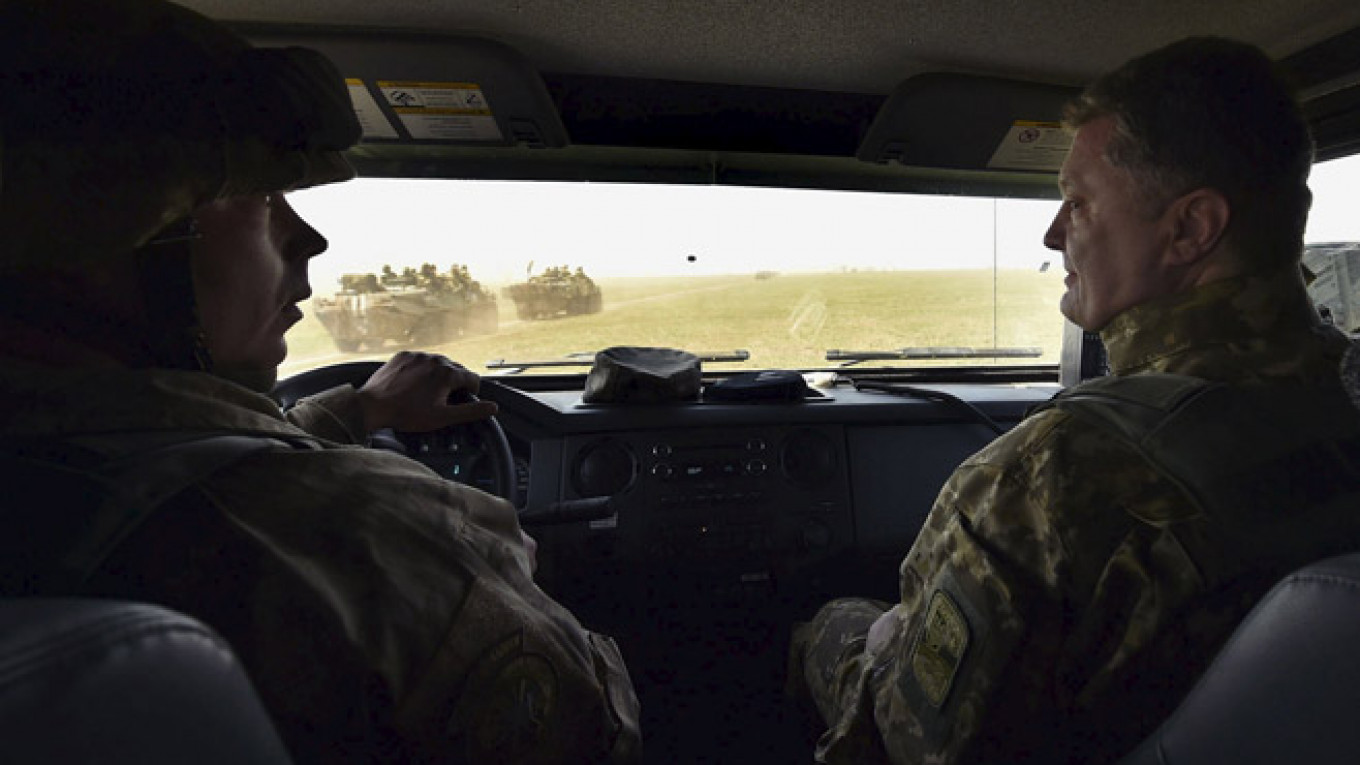A fragile cease-fire between Ukrainian government forces and pro-Russian separatists came under renewed pressure on Sunday with the Ukrainian military reporting that a serviceman had been killed and seven others wounded in rebel attacks.
The casualties, which follow the death on Saturday of another serviceman in shelling in the southeast, occurred as the Ukrainian military and the rebels accused each other of violating a peace deal signed in Minsk in February.
The latest violence has revived concerns that the deal, brokered by the leaders of Ukraine, Russia, Germany and France, could collapse, even though international monitors say violations were relatively limited.
More than 6,100 civilians, separatists and pro-Kiev service staff have been killed so far in the conflict. Fighting erupted in Ukraine's Russian-speaking east after the Moscow-backed president was ousted in a public revolt and Russia annexed Crimea.
Ukrainian military spokesman Oleksander Motuzyanyk said the separatists had stepped up their attacks against government forces and were using large-caliber artillery, all in violation of the Minsk agreement.
He said attacks were largely focused near the airport in the big regional city of Donetsk and in the southeast near Mariupol, a government-held coastal city of half a million on the Sea of Azov.
Mariupol is of strategic importance because of its position between rebel-controlled eastern regions and Russian-annexed Crimea.
"An increase in the number of violations of the cease-fire regime by [separatist] fighters has been noticeable in the past 24 hours," Motuzyanyk said.
He said the rebels were also using Grad rockets, again in violation of the Minsk deal, which calls for heavy weaponry to be pulled back from the conflict zone.
The Ukrainian military on Saturday made similar accusations against the rebels, who in turn accused the military of opening fire on an aid convoy from Russia and of firing indiscriminately in populated areas.
The Organization for Security and Cooperation in Europe (OSCE), which is monitoring the cease-fire, says the violations are still limited and markedly down from violence before the peace agreement.
"We are not in a phase of very active conflict like we have seen in previous months," OSCE Secretary-General Lamberto Zannier said on the sidelines of a security conference in Estonia on Saturday.
A Message from The Moscow Times:
Dear readers,
We are facing unprecedented challenges. Russia's Prosecutor General's Office has designated The Moscow Times as an "undesirable" organization, criminalizing our work and putting our staff at risk of prosecution. This follows our earlier unjust labeling as a "foreign agent."
These actions are direct attempts to silence independent journalism in Russia. The authorities claim our work "discredits the decisions of the Russian leadership." We see things differently: we strive to provide accurate, unbiased reporting on Russia.
We, the journalists of The Moscow Times, refuse to be silenced. But to continue our work, we need your help.
Your support, no matter how small, makes a world of difference. If you can, please support us monthly starting from just $2. It's quick to set up, and every contribution makes a significant impact.
By supporting The Moscow Times, you're defending open, independent journalism in the face of repression. Thank you for standing with us.
Remind me later.






